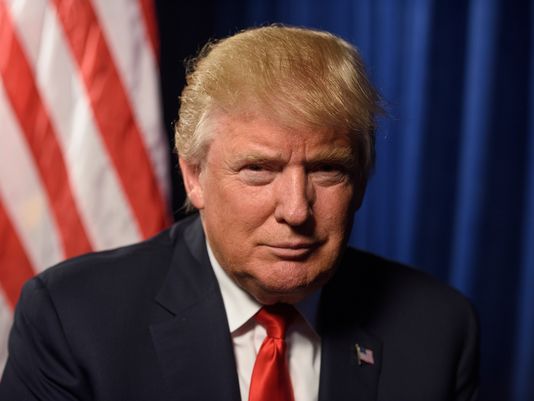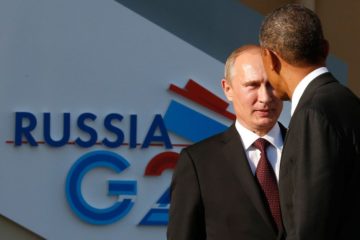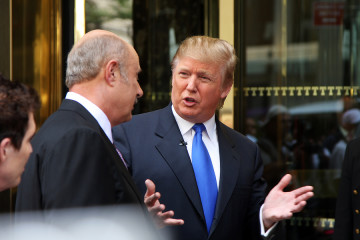Trump Seeks to Buy Time on Travel Ban Showdown in Seattle

(Bloomberg) —The Justice Department is seeking to pause a legal challenge to President Donald Trump’s immigration and travel restrictions by the states of Washington and Minnesota as the White House considers revising its executive order.
Washington state’s attorney general, meanwhile, told a Seattle federal judge Monday he’s eager to begin gathering evidence in his lawsuit challenging the president’s ban on travel to the U.S. by citizens of seven majority-Muslim countries.
Given the Trump administration’s “stated national security concerns, and the public interests at stake, the states respectfully submit that discovery should proceed without delay,” Washington Attorney General Bob Ferguson said in his filing.
Justice Department lawyers countered that it’s best to keep the case on hold until a San Francisco-based appeals court decides the next step. Trump said Friday he may issue a revised executive order, a day after a three-judge appeals panel refused to undo the Seattle judge’s ruling blocking the travel restrictions nationwide.
‘Appropriate Course’
The federal government believes “the appropriate course is to postpone any further proceedings” in Seattle until the appeals court decides whether to rehear the case with a larger panel of judges, the Justice Department said in its filing.
After one appeals judge asked for a rehearing, the chief judge of the court directed lawyers for both sides to file arguments by Thursday over whether a rehearing is appropriate. Typically a rehearing is granted when a majority of active judges on the court vote for it. The White House said Friday it was also weighing pursuing an appeal with the U.S. Supreme Court.
The latest sparring in Seattle comes after 17 elite universities including Harvard, Yale and Stanford have joined forces to argue that the ban threatens their ability to recruit students, faculty and scholars from abroad and to “meet their goals of educating tomorrow’s leaders from around the world.”
The schools are asking a Brooklyn federal judge for permission to join a lawsuit there opposing the ban. The American Civil Liberties Union and immigrant rights groups’ lawsuit has already led to a national order barring the government from relying on the ban to deport those who arrived on U.S. soil.
“These international students, faculty and scholars make significant contributions to their fields of study and to campus life,” the schools said in the court filing.
The other schools joining in the request are Brown, Carnegie Mellon, University of Chicago, Columbia, Cornell, Dartmouth, Duke, Emory, Johns Hopkins, the Massachusetts Institute of Technology, Northwestern, University of Pennsylvania, Princeton and Vanderbilt.
Syrian Refugees
The travel ban barred Syrian refugees indefinitely, and blocked for 120 days all others fleeing their homelands claiming persecution or fear of violence. No citizens of Syria, Iran, Iraq, Yemen, Somalia, Libya or Sudan initially could enter the U.S. for 90 days. The government amended the directive to allow those citizens to enter if they held a U.S. permanent resident permit, commonly known as a Green Card.
In Brooklyn, the schools say it’s their mission to attract the world’s best scholars, faculty and students as they strive to foster a rich educational environment and draw from all over the world. During the 2015-2016 academic year, more than 1 million international students studied at U.S. universities, according to the schools.
Yale, for example, has more than 4,000 international students and scholars or about 11 percent of its undergraduates and 20 percent of its total student population, the schools said. About 16 percent of Columbia’s students were international, while the University of Chicago says about 24 percent of its faculty and 65 percent of its postdoctoral researchers are from outside the U.S.
“The United States and the world reap benefits in a wide range of fields, including advances in medicine and science, equal treatment for women and religious minorities, and respect for democracy and the rule of law,” the schools said.
Students, Scholars
The ban has already negatively affected students, scholars and faculty, stranding some abroad while preventing others to travel to their homelands for field research, academic meetings, family or personal obligations, according to the schools.
Many are studying in the U.S. under special academic visas, had already been subjected to extensive vetting to enter the country and been deemed not to pose a threat to the U.S., the schools said.
The U.S. State Department also “provisionally revoked” the visas of most scholars from the seven affected countries, without any evidence to support the administration’s actions, according to the universities and colleges.
And the potential for harm continues even though the travel ban was halted by a federal appeals court in California on Feb. 9, the schools say. Academics from around the world have called for a boycott of conferences in the U.S. The opposition includes more than 42,000 scholars, including 62 Nobel Laureates, 813 Members of the National Academies of Sciences, Engineering and Arts and others.
The schools’ friend-of-the court brief comes in support of a lawsuit filed on Jan. 28 in Brooklyn, hours after Trump signed the ban. The government on Feb. 10 said the case should be dismissed because no one was in custody.
The Justice Department declined to comment on the filing.
The Washington state case is State of Washington v. Trump, 17-cv-00141, U.S. District Court, Western District of Washington (Seattle). The Brooklyn case is Darweesh v. Trump, 17-cv-00480, U.S. District Court, Eastern District of New York (Brooklyn).







No Comment